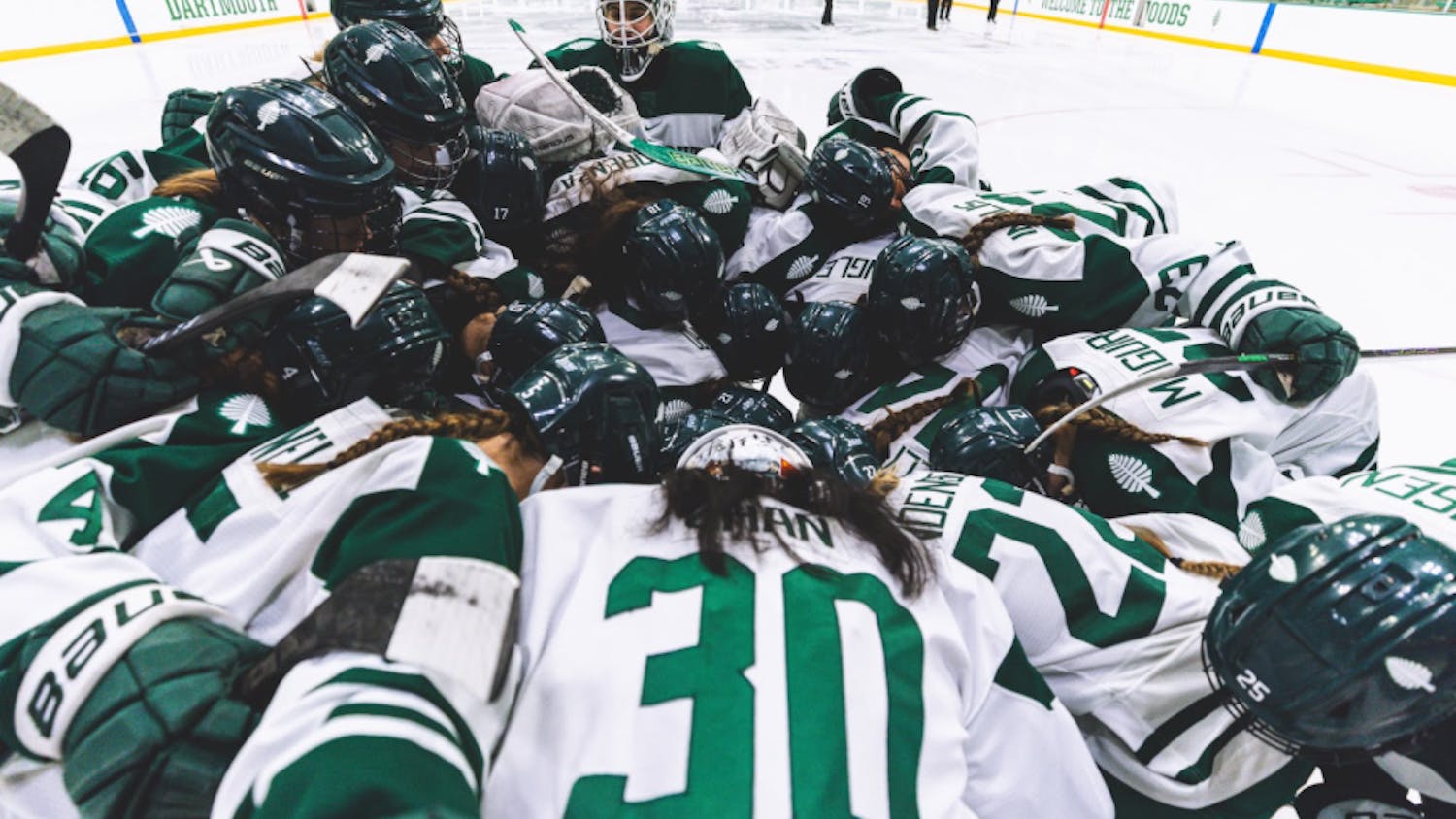This week, recent graduate and sailing standout Matt Wefer ’14 and his partner Jordan Factor are competing in Athens, Greece in the 470 European Championship.The Dartmouth caught up with Wefer via Skype to check in on the regatta and his training regimen as he and his partner pursue their goal to represent the U.S. in the 2016 Rio de Janeiro Olympics.
Wefer, who has sailed with Factor for nearly six years, competed for Dartmouth for four years and just received Academic All Ivy Honors. In 2013, he and Factor qualified for the U.S. sailing team. They are currently ranked 25th out of 73 listed racers, after one day of racing.
How does Athens compare to your lake sailing on Mascoma?
MW: It’s quite a bit different. The intensity level at times is much higher. Not to say Dartmouth sailing isn’t fierce, but you can give people leeway at times, and you can get leeway from others. Out here you have to fight for every inch. It’s definitely an atmosphere where the competition is incredibly fierce — everyone is at each others throats.
Do you get to interact with other teams, or is it just you and your crew?
MW: Yeah, we’re friends with so many other teams. The awesome part of this sailing scene is that everyone is friends off the water. We all love to go to the bar and have a beer after sailing, just to get to know each other as more than just competitors.
You’re there for a week, then you come back for a week, then what’s your timeline for the rest of the summer?
MW: I’m headed to Germany at the end of July for a junior event, junior world championships. Then I’m headed back here to Greece for another month of training, and then I head to Spain for the World Championships.
Describe for me the qualifying process you’re going through for the Olympics and the factors that they take into account.
MW: It’ll be a combination of international competitions against the other U.S. teams. We’ll have the world championships, plus an additional one or two events where you basically take your finishing position and add them up at all the events. The lowest score goes to the game. The system rewards consistency across multiple competitions as well as being able to compete at a high level internationally — not just U.S. competition but the world because at the end of the day we’re trying to win a medal.
Will they take your scores from this summer into account?
MW: No, right now we’re just working to learn as much as we can. These events count for our funding, but they don’t count for whether we qualify for the Olympics or not.
Is it hard to balance the travel and the sailing?
MW: It definitely has its ups and down. We do a lot of logistical work to make it as efficient as possible. We have a hard time communicating with those back home because of time differences and not always having Internet. It’s definitely a challenge staying connected with those back in the U.S. We have a done a great job so far of being able to balance traveling and what’s best for us. One the of reasons we’re staying here in Greece so long is that its quite cheap to live here and our expenses are so low. Plus we have a lot of training opportunities with the teams here so we’re able to get the best bang for our buck.
When you say you’re working with a couple of Greek teams and the training, what does that come down to? What kinds of experiences are you getting with those individual teams?
MW: We go out on the water with them, and we share the same coach so we get the same information in terms of what the breeze is doing. We test different techniques and then improve our techniques based on what we observe from the teams we’re training with and just to try to get better. The only way to get better to train and compete against teams that are better than us.
Is it daunting being with people who have been in the 470 for 20 years?
MW: It’s definitely intimidating, for sure. There are some people you don’t really want to mess with, because they are just that good and have that experience. What we’re coming to learn is that in order to improve is that you have to get beat down many times in order get back up and learn from those mistakes.
So what are you doing to relax out there? Is it just sailing, eating and sleeping?
MW: I’m doing a fair amount of weight training, going to the gym, running, staying in the shade out of the sun and drinking lots of coffee. The Greeks love to drink coffee.
This interview has been edited and condensed.



